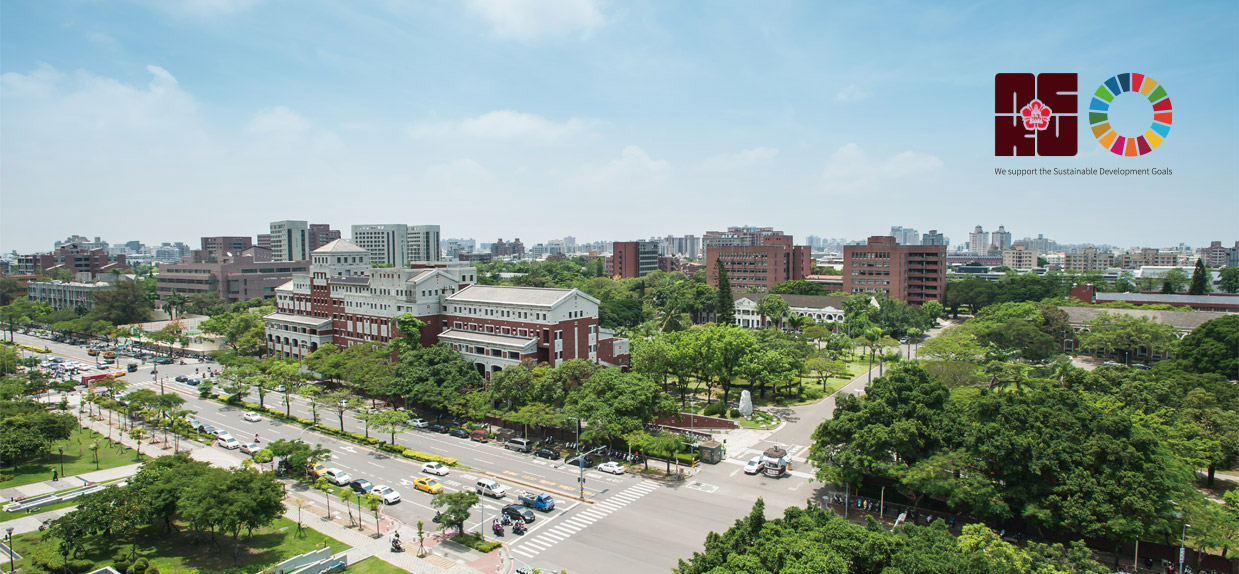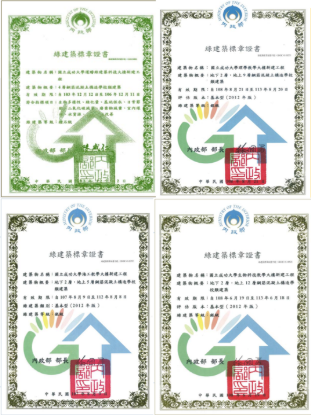National Cheng Kung University (NCKU) has established a comprehensive framework encompassing policy formulation, design criteria, and performance verification to ensure that all new construction and renovation projects meet the highest energy efficiency standards.
The NCKU Campus Green Building Code is a key document that explicitly mandates all major campus projects must achieve a minimum of a Silver-level official Green Building Label (EEWH). From the earliest design stages, it incorporates criteria for building envelope performance, high-efficiency HVAC, and lighting systems, establishing a solid foundation for energy-efficient architecture on campus.
The concrete outcomes and a comprehensive inventory of this policy are documented in the 2024-2025 Sustainability Report. The 'Campus Green Building Statistics' section systematically lists all officially certified green buildings, demonstrating the code's widespread and successful implementation. Furthermore, the 'NCKU Green Buildings' presentation visually showcases these projects through case studies and details on their sustainable design.
Our "Sun Yun-Suan Green Building Research Center (Magic School of Green Technologies)" is a premier example. It is not only a model of energy efficiency with Taiwan's highest Diamond-level certification but also the world’s first subtropical green building education center and a USGBC LEED Platinum-certified net-zero carbon building. This landmark exemplifies NCKU’s capability to not only adhere to rigorous internal standards but also to achieve world-class excellence in energy efficiency, with its achievements showcased on the official MSGT website (www.msgt.org.tw).
The NCKU Campus Green Building Code is a key document that explicitly mandates all major campus projects must achieve a minimum of a Silver-level official Green Building Label (EEWH). From the earliest design stages, it incorporates criteria for building envelope performance, high-efficiency HVAC, and lighting systems, establishing a solid foundation for energy-efficient architecture on campus.
The concrete outcomes and a comprehensive inventory of this policy are documented in the 2024-2025 Sustainability Report. The 'Campus Green Building Statistics' section systematically lists all officially certified green buildings, demonstrating the code's widespread and successful implementation. Furthermore, the 'NCKU Green Buildings' presentation visually showcases these projects through case studies and details on their sustainable design.
Our "Sun Yun-Suan Green Building Research Center (Magic School of Green Technologies)" is a premier example. It is not only a model of energy efficiency with Taiwan's highest Diamond-level certification but also the world’s first subtropical green building education center and a USGBC LEED Platinum-certified net-zero carbon building. This landmark exemplifies NCKU’s capability to not only adhere to rigorous internal standards but also to achieve world-class excellence in energy efficiency, with its achievements showcased on the official MSGT website (www.msgt.org.tw).






 This sustainability report presents the tangible results of our building energy efficiency policies. The "Green Building Statistics" section details all officially certified green buildings on campus, including landmark cases like the Diamond-level "Magic School of Green Technologies." These data and examples not only serve as concrete proof of the implementation of our Green Building Code but also quantify the outstanding energy-saving performance we have achieved in new construction and renovation projects, demonstrating the effectiveness of our actions.
This sustainability report presents the tangible results of our building energy efficiency policies. The "Green Building Statistics" section details all officially certified green buildings on campus, including landmark cases like the Diamond-level "Magic School of Green Technologies." These data and examples not only serve as concrete proof of the implementation of our Green Building Code but also quantify the outstanding energy-saving performance we have achieved in new construction and renovation projects, demonstrating the effectiveness of our actions.